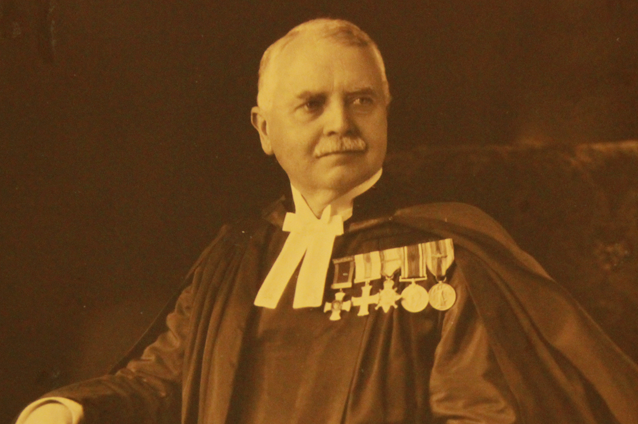He was the first to hold up his hands in peace on the Christmas Truce of 1914.
Now the life of Aberdeen minister the Rev Colonel James Esslemont Adams, chaplain of the Gordon Highlanders, has been honoured at a special service.
Mr Esslemont Adams has been remembered for walking over
no man’s land on Christmas morning towards enemy lines and calling out for the German commanding officer.
It was his aim to bring a lull in conflict and bury the Scots soldiers who had fallen behind the wire during fierce fighting over the previous days.
In the spirit of Christmas cordiality, his request was met, and the minister was also to say prayers over a mass grave of 16 German soldiers.
Troops from both sides gathered for a short service – with the 23rd Psalm read in both languages.
It is said that at the end of the reading, the Germans handed the minister a cigar in thanks.
It was the starting point in what has become known as the Christmas Truce, a ritual which was repeated throughout the Great War – and often during conflicts since.
A remembrance service for those who took part in the Christmas Truce has been held at the University of Glasgow, from where Mr Esslemont Adams, minister at the West United Free Church, graduated in 1888.
Professor John Briggs, clerk of senate and vice-principal of the university, told those gathered that Mr Esslemont Adams took his opportunity of approaching the Germans after seeing soldiers from both sides laying down their arms.
He said: “Swiftly taking in the situation, he realised that this was an ideal opportunity to arrange for the burial of the dead who had been lying beyond the wire since the previous week’s attack – the Gordons had not been involved but they were now in trenches occupied at that time by the Scots Guards.
“The chaplain told the CO his intention, then climbed on to the fire-step and strode out into no man’s land.
“On reaching a small ditch, which ran along the middle of the field between the lines, he held up his hands and called out to a group of Germans ‘I want to speak to your commanding officer. Does anyone speak English?’.
“Several German officers were standing together, and one of them said ‘Yes, come over the ditch.’.
“The chaplain hurried forward, saluted the senior German present and began to put his proposal to him and his staff.”
It was said that, following the service, soldiers could be seen up and down no man’s land bearing gifts to the enemy, with bully beef, Maconochie’s stew, cake, biscuits, chocolate, tea, cigarettes, rum and Christmas puddings offered by the British.
In return, the Germans offered sweets, nuts, chocolates, sausages, sauerkraut, coffee, cognac, schnapps and wine.
Mr Esslemont Adams was 49 at the outbreak of war and within a month was on the front, later to become chaplain to the 6th Battalion of the Gordon Highlanders.
John Broom, of the Bible Society, said that the minister believed it was his “duty to serve the men at the front facing what he called ‘the stern reality of war'”.
In 1915, he wrote The Chaplain and the War, a guide for other clergy entering conflict.
